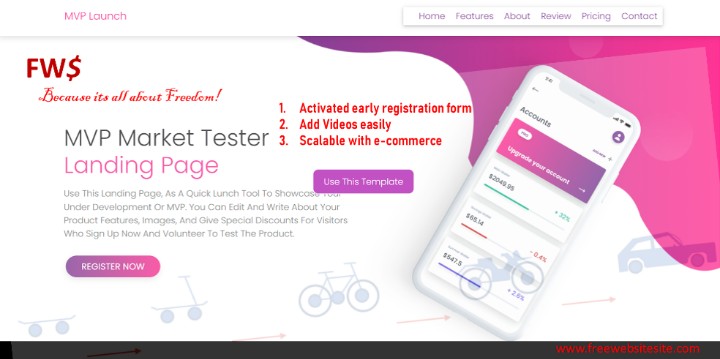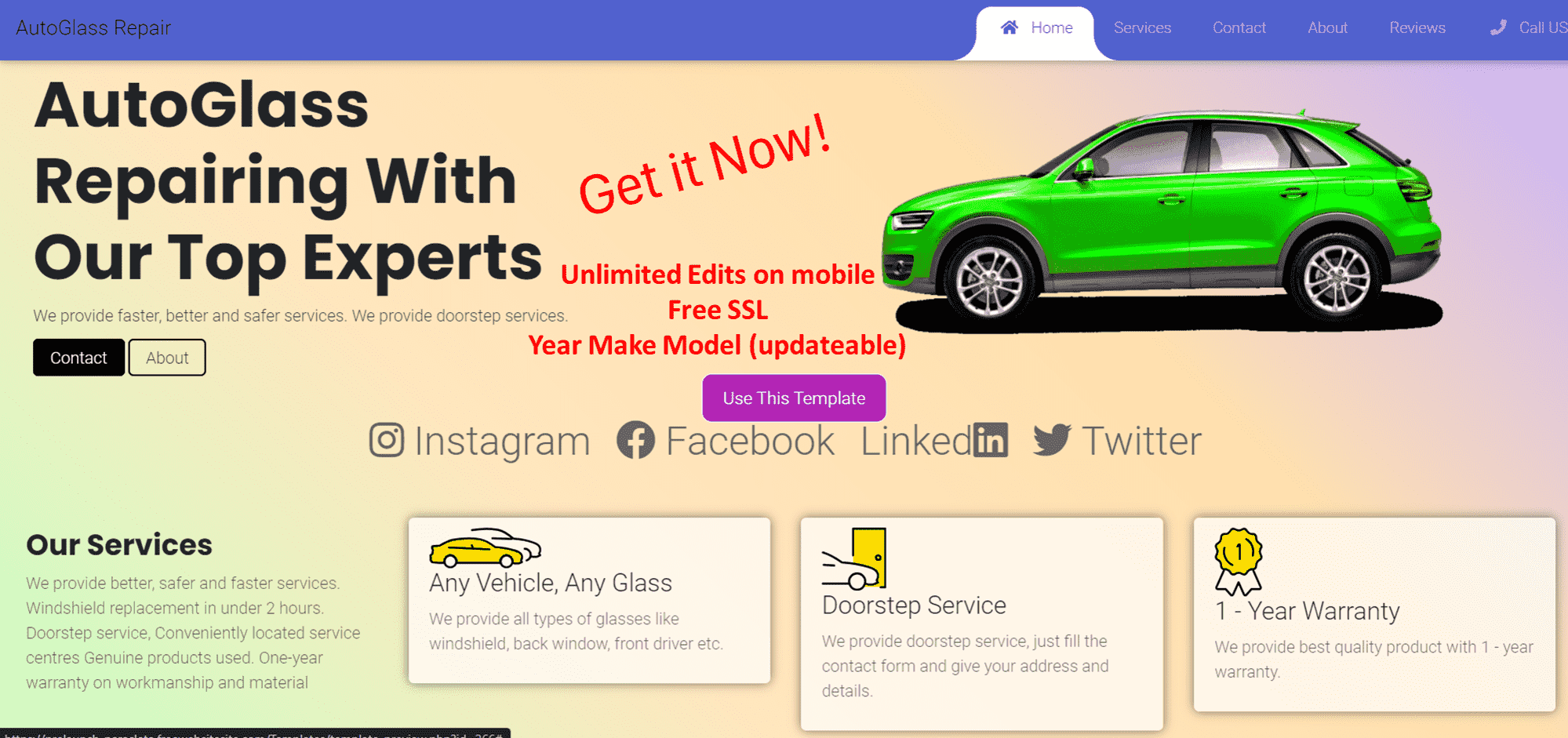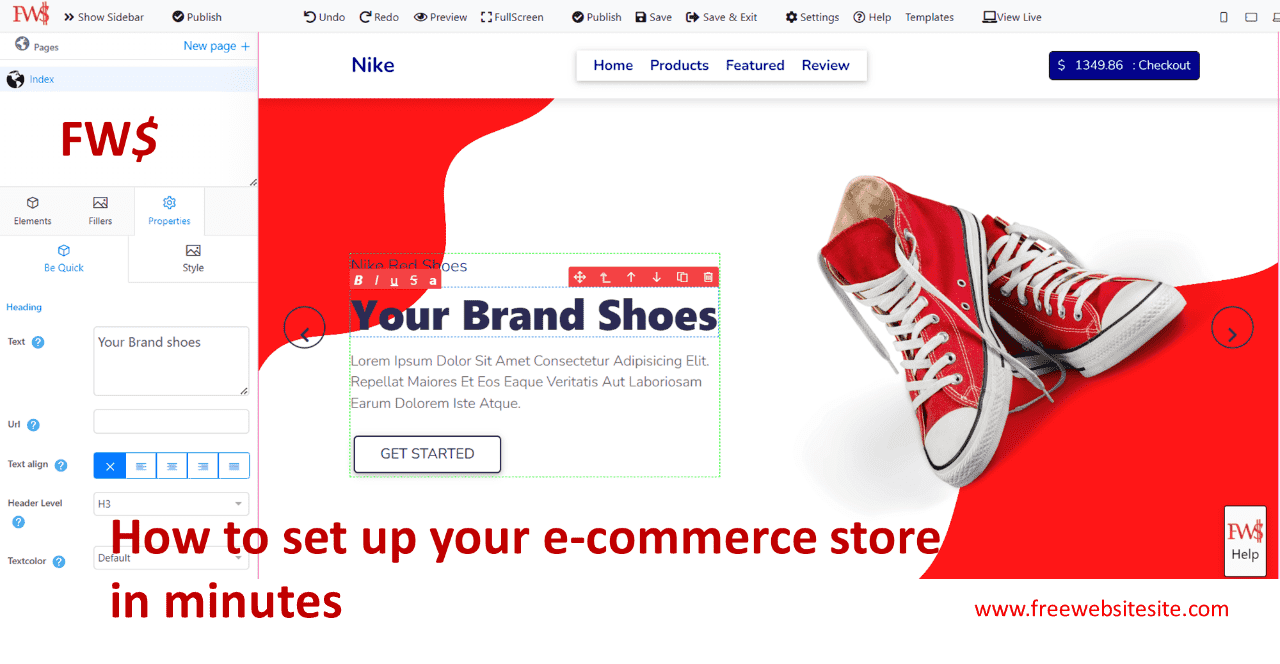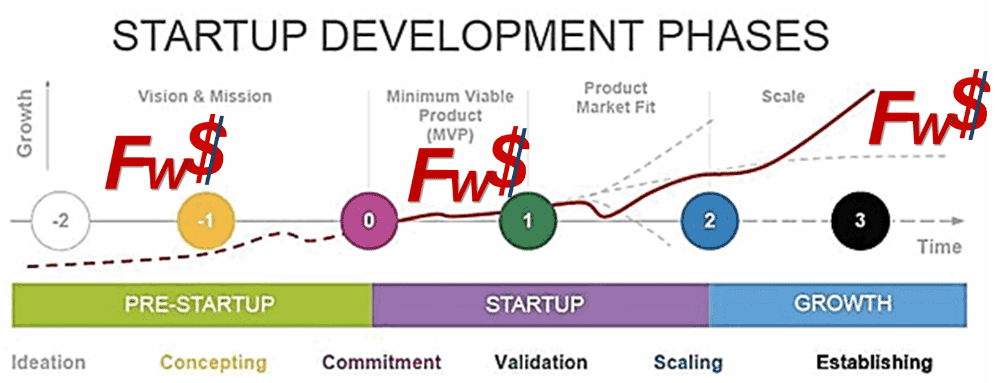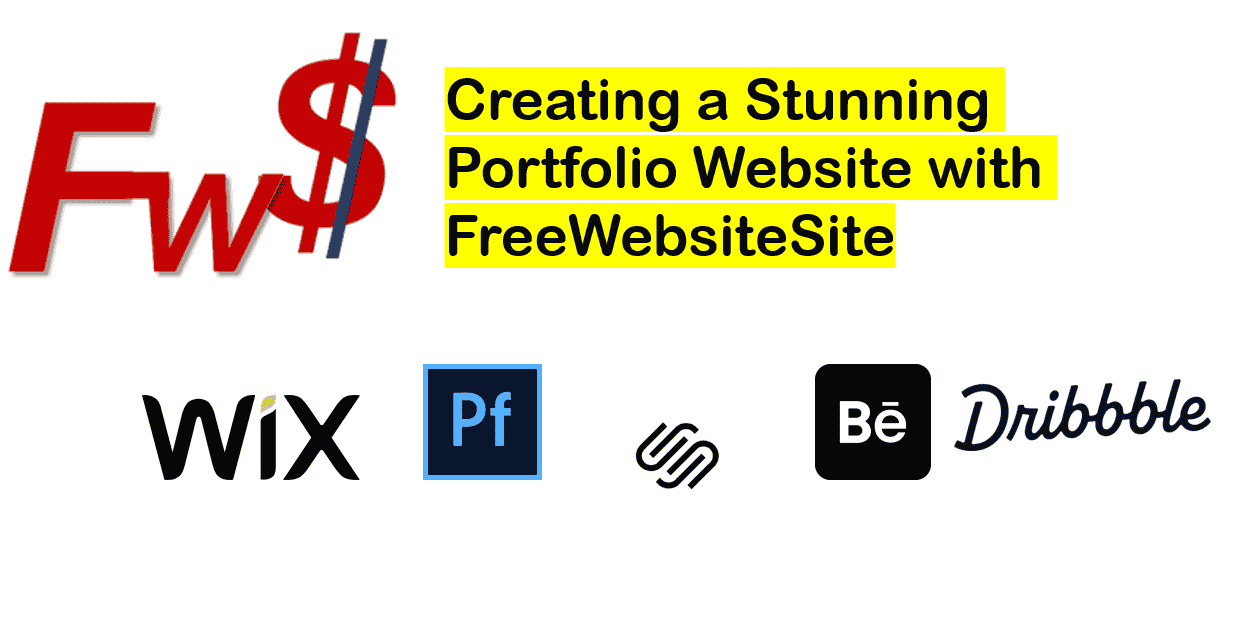How to Choose the Right Domain Name- Tips & Comparison Guide
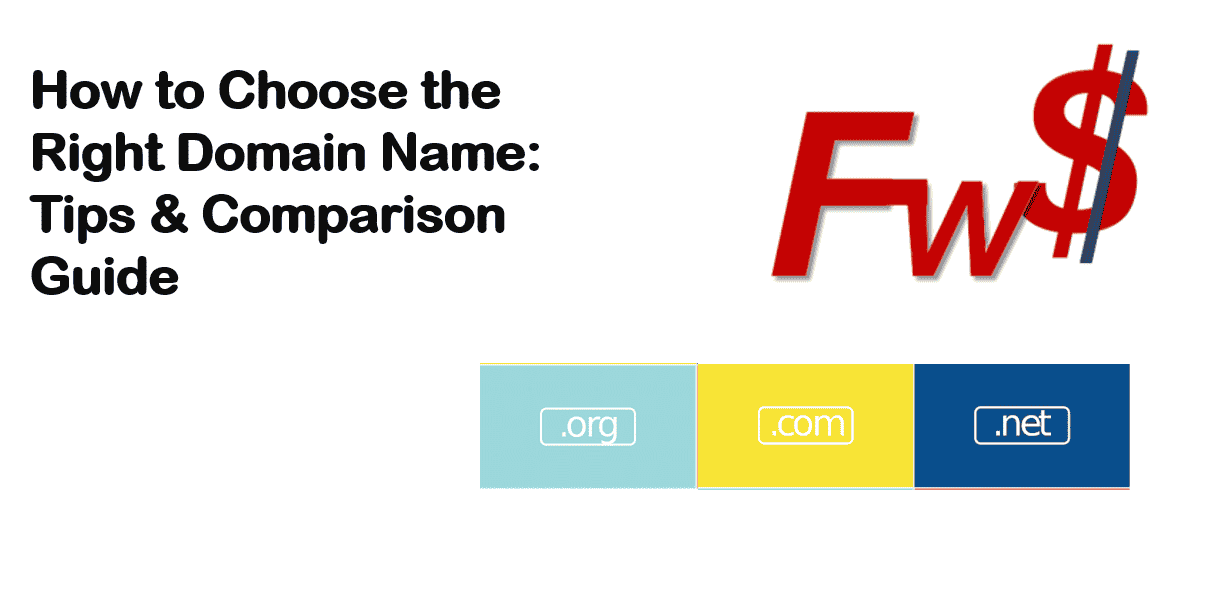
How to Choose the Right Domain Name: Tips & Comparison Guide
Choosing a domain name is one of the most crucial decisions you’ll make when building your online presence. Whether you're creating a website for personal use, a blog, or an eCommerce business, the right domain name can help establish your brand, enhance SEO, and improve user engagement. However, with so many options available, selecting the best domain name can be overwhelming. In this guide, we’ll walk you through tips for choosing a domain name, compare different domain extensions (.com vs .net vs .org), and evaluate the option of using free domain names like those from eprofitify.com.
Table of Contents
- Introduction: Why Choosing the Right Domain Name Matters
- Tips for Choosing the Perfect Domain Name
- Comparing Domain Extensions: .com vs .net vs .org
- Should You Use a Free Domain Name?
- Conclusion
Why is Choosing the Right Domain Name Important?
Your domain name is more than just a web address; it’s a digital representation of your brand. Here’s why choosing the right one matters:
- Brand Identity: A strong domain name reflects your business or personal brand, making it easier for people to remember.
- SEO Benefits: Including relevant keywords in your domain name can improve your website’s search engine ranking.
- Trustworthiness: A professional and easy-to-remember domain can help build credibility with your audience.
Now that we understand its importance, let’s dive into the essential tips and comparisons to guide your decision-making process.
Tips for Choosing the Perfect Domain Name
1. Keep It Short and Simple
Long and complicated domain names can be difficult to remember and prone to typos. Aim for simplicity and clarity. A domain name under 15 characters is ideal. The simpler your domain, the easier it is for users to recall and type.
2. Make It Brandable
Your domain should be catchy and easy to brand. Avoid generic or overused terms. A unique name will help your website stand out from competitors and enhance your brand’s identity.
3. Use Keywords
Including keywords related to your business or niche in your domain name can help with SEO. For example, if you run a pet store, something like "PetSupplies.com" will give you a slight edge in search rankings and help users understand your website’s purpose instantly.
4. Choose a Memorable Name
A memorable domain name is more likely to stick in the minds of your visitors. Consider using rhymes, alliterations, or even creating a fun play on words. The goal is to make it easy to remember and recall.
5. Avoid Hyphens and Numbers
Hyphens and numbers can be confusing and prone to errors when typed. People might forget where to place the hyphen or misinterpret a number as a word (e.g., "2" as "to"). Stick with letters only to ensure clarity.
6. Check for Trademark Issues
Before committing to a domain name, ensure it’s not infringing on any trademarks. Performing a trademark search can prevent costly legal issues down the line.
7. Ensure Domain Availability on Social Media
Ideally, your domain name should be consistent across all platforms. Check the availability of your domain name on major social media platforms to ensure a cohesive online identity.
Comparing Domain Extensions: .com vs .net vs .org
The domain extension, also known as the top-level domain (TLD), is a crucial factor in choosing the right domain name. The most common TLDs are .com, .net, and .org. Let’s compare their features to help you make an informed decision.
1. .com (Commercial)
- Best for: Businesses, blogs, and personal websites.
- Pros:
- .com is the most recognized and trusted domain extension globally.
- It’s the default extension people often type when they remember a website.
- Perfect for building a strong, professional online presence.
- Cons:
- Many .com domains are already taken, making it harder to find your ideal name.
- Often higher registration costs compared to other extensions.
2. .net (Network)
- Best for: Tech companies, network services, and tech startups.
- Pros:
- Often available when .com is taken.
- Suitable for technology-related websites.
- Cons:
- Less recognized and trusted compared to .com.
- May not convey the same level of professionalism for non-tech businesses.
3. .org (Organization)
- Best for: Nonprofits, charities, educational institutions, and open-source projects.
- Pros:
- Trusted by non-profit organizations and educational websites.
- Recognized as a legitimate extension for causes.
- Cons:
- Might confuse users if your website isn’t a nonprofit or an organization.
- Limited appeal to businesses outside the nonprofit sector.
Which Domain Extension Should You Choose?
- Go for .com if you’re building a business or want a universally trusted extension.
- Consider .net if your domain is related to technology or networks and .com is unavailable.
- Choose .org if your website is a nonprofit, educational institution, or a community-driven project.
Should You Use a Free Domain Name?
Many website builders offer free domain names through services like eprofitify.com. While this might seem like a tempting option, there are some significant trade-offs to consider.
Pros of Free Domain Names:
- No Initial Cost: It’s a great way to get started with minimal investment.
- Quick Setup: You can launch your website quickly without worrying about domain registration.
Cons of Free Domain Names:
- Lack of Professionalism: Free domains often come with subdomains like “yoursite.eprofitify.com,” which can look unprofessional and hurt your credibility.
- Limited Customization: Free domain providers may restrict your website’s features and growth.
- SEO Disadvantages: A free domain is unlikely to rank as well as a custom domain with a professional extension.
If you’re serious about building a brand and optimizing your website for search engines, it’s best to invest in a paid domain name. A custom domain with a reputable TLD will offer more control, better branding, and SEO benefits.
Conclusion
Choosing the right domain name is a vital step in establishing your online presence. Keep it short, brandable, and relevant to your niche. When considering domain extensions, .com is usually the best choice, but .net and .org can be good alternatives depending on your industry. While free domain names may seem appealing, they are generally not suitable for serious businesses or websites looking to grow. Ultimately, the domain name you choose will have a lasting impact on your website’s success, so take the time to select wisely.
By following the tips and comparisons in this guide, you can confidently choose a domain name that aligns with your goals and strengthens your online brand.
Related Templates
Here are some key statistics and facts related to choosing the right domain name, domain extensions, and the importance of a professional domain for businesses:
1. Importance of Domain Names for Business and Branding
- 75% of consumers judge a business’s credibility based on its website design and domain name. (Source: Web.com)
- 70% of online users prefer to type in a ".com" extension when they visit a website, showing the dominance of this TLD in terms of brand recognition and trust. (Source: Verisign)
- A strong and memorable domain name can improve the chances of getting repeat traffic, as 85% of visitors revisit websites with easily recognizable domains. (Source: HubSpot)
2. Domain Extensions Usage
- .com remains the most popular domain extension, accounting for approximately 45% of all registered domains worldwide. (Source: Statista)
- .net ranks second with about 5.5% of the total domain registrations, making it a reasonable choice for tech-related businesses. (Source: Statista)
- .org is commonly used by nonprofit organizations and holds around 4.5% of domain registrations. (Source: Statista)
3. Impact on SEO
- Having a keyword-rich domain name can improve search engine ranking by as much as 10% to 15%. (Source: Moz)
- Domains with a .com extension are more likely to be trusted by search engines, potentially increasing organic traffic by up to 25% compared to less common TLDs. (Source: Search Engine Journal)
4. Free Domain Names and Their Limitations
- Free domains are typically associated with subdomains, such as "yourname.eprofitify.com," which can hurt professional credibility. Studies show that websites with free subdomains are 30% less likely to generate trust from visitors than those with custom domain names. (Source: WPBeginner)
- Over 55% of businesses that started with a free domain name eventually upgraded to a paid one to enhance their brand's image and professional appeal. (Source: WebsiteBuilderExpert)
5. Consumer Behavior
- 60% of consumers are more likely to click on a website with a simple, relevant domain name than on a website with a long or complicated domain. (Source: GoDaddy)
- Websites with shorter domain names (under 15 characters) are remembered by users 38% more easily than those with longer names. (Source: HubSpot)
6. Domain Registration and Pricing Trends
- As of 2024, the average cost of a .com domain is around $10–$15 per year, while .net and .org domains generally cost between $12–$20 per year. (Source: Namecheap)
- Domain names with high-value keywords can cost thousands of dollars, with some premium domain names being sold for millions. The highest recorded sale for a domain name was $49.7 million for “CarInsurance.com.” (Source: Domain Name Wire)
